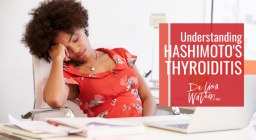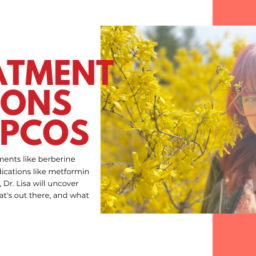
Hair loss can be a devastating symptom for men and women alike. When it happens during adolescence or young adulthood it can be even more so. Alopecia areata, a type of hair loss that affects up to 0.2% of the population (that’s over 50 000 people in Toronto alone) most often starts in people under 20 years of age.
Men and women suffer equally from alopecia areata and it occurs in all ethnic groups. While we don’t know exactly what causes alopecia areata the evidence suggests it is an autoimmune condition with genetics and environmental factors contributing to its onset.
DIAGNOSIS of ALOPECIA AREATA
Alopecia areata has a characteristic appearance of well-defined round or oval areas of hair loss. Typically occurring on the scalp, the circular patches of hair loss are free from scarring and the skin is not discoloured. Around the patch of hair loss some hairs will have an “exclamation point” appearance showing signs of the abnormal transition of the hair through it’s growth phase.
While alopecia areata usually occurs as defined patches on the scalp, alopecia totalis occurs when there is total loss of the scalp hair and alopecia universalis refers to loss of all hair on the scalp and body.
Diagnosis of alopecia areata should consist of a detailed history, a thorough clinical examination and appropriate laboratory testing. Markers of inflammation and nutritional status should be included in any blood work to identify potential contributing factors in the onset and development of alopecia areata.
TREATMENT of ALOPECIA AREATA
Treatment of alopecia areata is difficult to assess because spontaneous recovery and hair regrowth occurs within 6 to 12 months for more than half of all patients. However, recurrence is high so efforts should be made to determine the underlying cause of alopecia areata and treat accordingly.
While many things can contribute to the development of alopecia areata research suggests that some of the most significant factors are:
- Stress (physical or emotional)
- Hormone fluctuations
- Infectious diseases or illnesses
- Autoimmune conditions
- Pre-existing health conditions such as celiac disease, ulcerative colitis, psoriasis, multiple sclerosis, vitiligo and lupus
- Nutritional deficiencies – especially zinc and iron

As a Naturopathic Doctor my focus is on uncovering potential imbalances that may be contributing to the development of disease. With alopecia areata there are often multiple factors that must be addressed – nutrient deficient diets, stress, poor immune function and hormone imbalances being the most common.
Potential natural treatments depend on individual needs – unfortunately there is no one diet or supplement that can cure alopecia areata. The best course of action is to understand your health – what are the potential causes of your hair loss and how can they be addressed through dietary, nutritional and supplemental support.
To learn more about my individualized approach to hair loss, book a complimentary 15 minute meet-and-greet. Learn how you can improve your health today.
References:
- Shapiro J. Hair Loss in Women. N Engl J Med. 2007;357:1620-1630.
- Springer K, Brown M, Stulberg DL. Common hair loss disorders. Am Fam Physician. 2003;68(1):93-102.
- Tosti A. Diseases of hair and nails. In: Goldman L, Schafer AI eds. Goldman’s Cecil Medicine. 24th ed. Philadelphia, PA: Mosby Elsevier; 2012:chap 450.
- Alkhalifah A, Alsantali A, Wang E, McElwee KJ, Shapiro J. Alopecia areata update part I. Clinical picture, histopathology and pathogenesis. J Am Acad Dermatol. 2010;62(2):177-188.
- Brajac I, Tkalcic M, Dragojevic DM, Gruber F. Roles of stress, stress perception and trait-anxiety in the onset and course of alopecia areata. J Dermatol 2003;30:871-878.
- Harries MJ, Sun J, Paus R, King LE Jr. Management of alopecia areata. BMJ. 2010;341:c3671.
- Rushton DH. Nutritional factors and hair loss. Clin Exp Dermatol. 2002;27(5):396-404. Trost LB, Bergfeld WF, Calogeras E. The diagnosis and treatment of iron deficiency and its potential relationship to hair loss. J Am Acad Dermatol. 2006;54(5):824-844.
- Park H, Woo Kim C, Seok Kim S, Wook Park C. The therapeutic effect and the changed serum zinc level after zinc supplementation in alopecia areata patients who had a low serum zinc level. Ann Dermatol. 2009;21(2)142-146.
















I would love to know if there are any naturopaths you’d recommend in Vancouver. I haven’t found any in my searches …
There are many wonderful NDs in Vancouver. I suggest checking out the amazing team at Evoke Medicine – http://www.evokemedicine.com/
~Lisa
This was a great read. My 3 year old son has alopecia areata, started in May and began to regrow in November. Now new spots are forming. Wish I lived closer so we could set up an appointment. Any great ND’s located in Edmonton?
You’ve got a great community of Naturopaths in Edmonton! Check out the College of Naturopathic Doctors of Alberta for licensed NDs in your area. http://www.cnda.net/find-an-nd
I live in India. Suffering from areata alopecia from past 8yrs. I have just completed 26yrs. I have tried almost all alopethic medicines. How can u help me.
I suggest you get some comprehensive lab testing done to see if you can identify the cause of your alopecia. It’s only when you determine the root cause that you can stop the hair loss. ~Dr. Lisa
This was a wonderful article thank you. My wife has AA and we are on an aip paleo diet and doing. PRP. We live in LA and are looking for a good Naturopath to support further treatments. Willing to travel. Let me know if you have any suggestions. 🙂
You’re lucky enough to live in a state where Naturopathic Medicine is regulated. I’d start with your local naturopathic association – they can usually connect you to an excellent ND in your area. https://www.calnd.org/
~Dr. Lisa
I wish I lived in TO as I need someone with your level of understanding on AA. Do you know of any naturopaths in Calgary that specialize in understanding this auto immune disease? Thanks in advance!
Calgary has AMAZING naturopathic doctors! Start by going to the Alberta Association of Naturopathic Doctors and do meet and greets with as many as you need to until you find the right one for you. https://www.albertands.org/
x
Dr. Lisa